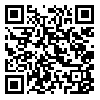
 , Seyed Kamran Soltani Arabshahi
, Seyed Kamran Soltani Arabshahi 
 , Shahnam Sedigh Maroufi
, Shahnam Sedigh Maroufi 
 , Somayeh Alizadeh
, Somayeh Alizadeh 
 , Zohreh Sohrabi
, Zohreh Sohrabi 

Introduction: Clinical skill assessment is a key component in medical education, significantly influencing the professional performance of graduates. Traditional assessment methods, such as oral and unstructured exams, are unable to comprehensively evaluate clinical competencies due to issues like insufficient reliability and validity. The Group Objective Structured Clinical Examination (GOSCE) is a novel assessment method that enables the evaluation of complex skills such as teamwork and professional communication. This study aimed to assess the acceptability and feasibility of the GOSCE exam in the field of anesthesia at Iran University of Medical Sciences.
Methods: This descriptive-cross-sectional study was conducted in 2021 at the Paramedical School of Iran University of Medical Sciences. The participants included nine faculty members with at least three years of teaching experience and 18 final-year students. Data were collected using standardized satisfaction and feasibility questionnaires, with Cronbach's alpha values of 0.85 and 0.72, respectively.
Results: The mean acceptability score of the GOSCE exam was 98.66 (±7.21) from the faculty's perspective and 98.27 (±5.10) from the students' perspective, both exceeding the acceptable threshold of 60. Additionally, the overall feasibility score was 113.22 (±6.30), indicating high feasibility of the GOSCE exam. Analysis showed no significant difference between the faculty and student perspectives.
Conclusion: The GOSCE exam has high acceptability and feasibility and can be used as a complementary method in clinical skill assessment, especially in the field of anesthesia. Further studies are recommended to explore the long-term effects and broader applications of this method.
| Rights and permissions | |
 |
This work is licensed under a Creative Commons Attribution-NonCommercial 4.0 International License. |





